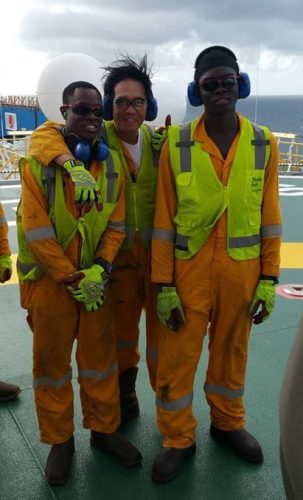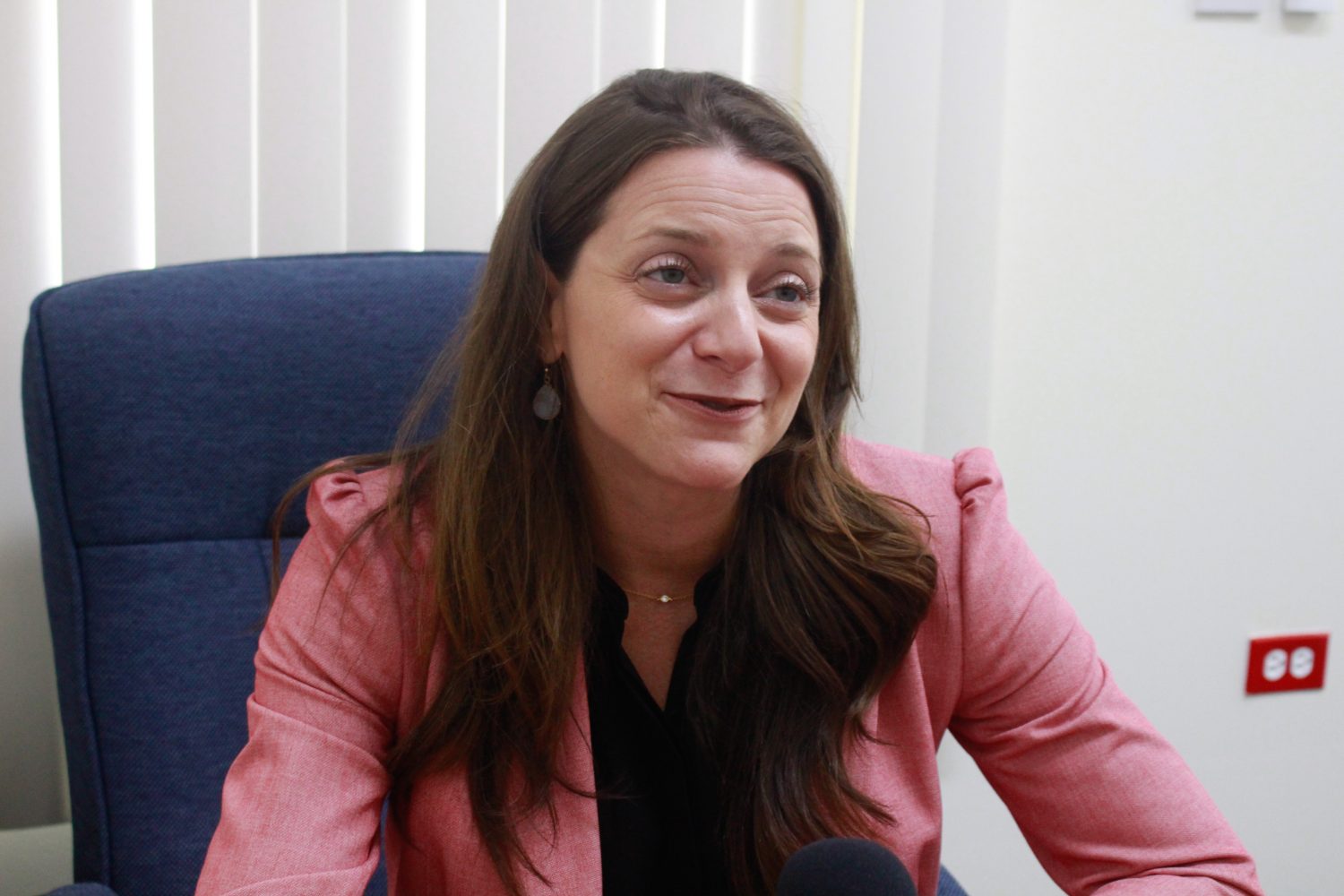Guyanese comprise fifty-two percent of ExxonMobil’s local workforce while 227 Guyanese companies serviced its oil and gas operations in 2018.
Exxon’s Government and Public Affairs Director, Kimberly Brasington, provided data to the Department of Public Information (DPI) which stated that 585 Guyanese were employed on the drill rigs, shore bases and affiliate office at the end of March.

These workers came from Exxon’s subcontracted companies. JSL International, a registered Guyanese company, which is one such company providing Guyanese staff for the Noble Drilling.
The Noble Bob Douglas has been contracted to drill the production wells for ‘First Oil’ in 2020. The drillship has 160 personnel on board of which 23 are Guyanese in the positions of catering, roustabouts, clerks, logistics and one doctor.
Exxon, DPI said, also provided 61,000 training hours for workers and hired three facilities engineer graduates, two from the University of Guyana and one from the University of the West Indies, in March.
Exxon is also training to Guyanese to fulfil key responsibilities including to serve as primary subsea engineering maintenance team, coordinate equipment strategy and operational issues and be part of the company’s emergency response team.
The data also shows that 48 percent of the workforce includes non-Guyanese and CARICOM (Caribbean Community) workers during the first quarter of 2018.
“We take building local content seriously and have demonstrated that through action and capacity building,” Brasington said, according to DPI. This also applies to the suppliers Exxon uses in its operations.
Exxon says it spent US$14Million with 227 Guyanese suppliers by the first quarter of this year. Brasington explained these are non-duplicate Guyanese owned companies. Exxon also utilized 35 foreign-owned company or CARICOM companies, who had locally registered businesses, DPI reported.





